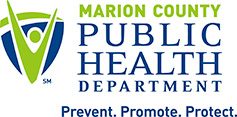Did you know there were over 4,000 suspected drug overdose emergency department visits at Marion County hospitals in 2022? Each non-fatal overdose event represents an opportunity to intervene and provide harm reduction and treatment support to the patient. Key messages covered during virtual or in-person academic detailing sessions will vary depending on the healthcare provider’s needs.
What topics will be covered during educational sessions?
· Harm reduction
· Prescribing medications for opioid use disorder (MOUD)
· Drug Enforcement Agency (DEA) licensure requirements
· SUD Stigma reduction
Expectations for participants:
· Participate in 2-3 detailing sessions (~30 minutes per session)
· Complete one brief, post-visit feedback form
These efforts are being funded by the Overdose Data to Action: Limiting Overdose Through Collaborative Actions in Localities (OD2A: LOCAL) grant that was awarded the Marion County Public Health Department.
Marion County’s first academic detailing project was funded by Centers for Disease Control and Prevention’s Overdose Data to Action (OD2A) Grant. MCPHD’s academic detailing team worked closely with the National Resource Center for Academic Detailing (NaRCAD) for intensive training and for support in developing educational tools to use with primary care providers. The overall goal of this detailing campaign was to work with providers to increase the likelihood of patient screening for SUD and mental health needs and to connect individuals who screen positive to the community resources and referrals.
Promotional and educational materials:
Dr. Virginia Caine, Director & Chief Medical Officer of MCPHD, call to action letter for health care providers about academic detailing (Dr. Caine Letter Mailer).
This academic detailing campaign ran from September 2021 to June 2022.
What topics will be covered during educational sessions?
- Screening for Substance Use Disorder (SUD)
- Reducing SUD Stigma
- Motivational Interviewing
- 7 Myths of Medications for Opioid Use Disorder (MOUD)
- Prescribing MOUD
- Drug Overdose Data & Resources
- IU Health Outpatient Addiction Treatment Resources for patients & providers
- Overview of MCPHD’s SUD Academic Detailing Program
- Dr. Virginia Caine’s call to action letter for health care providers about academic detailing
This pilot project is funded by NACCHO’s Integrating Positive and Adverse Childhood Experiences into Pediatric Care (IPACE) grant.
This project aims to assess the Adverse Childhood Experiences (ACEs) and Positive Childhood Experiences (PCEs) curriculum messaging and materials and revise it based on feedback from IPACE sites and participating pediatric providers.
This pilot also aims to determine whether ADs and detailing sessions can assist pediatricians in identifying, celebrating, and promoting positive childhood experiences that contribute to mental and physical health without stigma or labeling by asking questions, actively listening, assessing situations and signs of mental health problems, and referring families to resources and services when desired.
What topics will be covered during educational sessions?
* Identifying positive experiences and strengths
* Asking about social determinants of health
*Assessing how identifying risk factors may be affecting the child’s current health
*Referring families to relevant resources and services when desired
Expectations for participants:
*Participate in 3 detailing sessions (~30-45 minutes per session)
*Complete two brief, post-visit feedback forms after the first and third sessions
How to get involved?
*Please complete the short questionnaire at https://redcap.link/ADinterest_ACEs and we will reach out to answer your questions and arrange a virtual meeting.
*If you have any questions, please feel free to reach out to Cate Vreede at cvreede@marionhealth.org.


